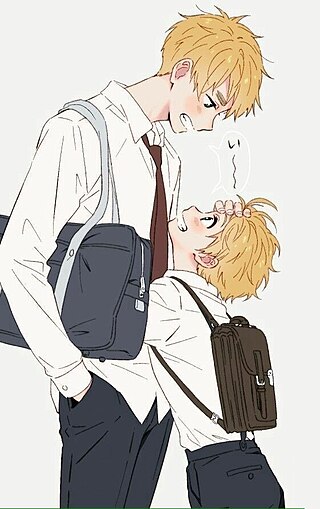
Shotacon, abbreviated from Shōtarō complex, is, in Japanese contexts, the attraction to young boy characters, or media centered around this attraction. The term refers to a genre of manga and anime wherein prepubescent or pubescent male characters are depicted in a suggestive or erotic manner, whether in the obvious role of object of attraction, or the less apparent role of "subject".

Barazoku (薔薇族) was Japan's first commercially circulated gay men's magazine. It began publication in July 1971 by Daini Shobō's owner's son and editor Bungaku Itō, although before that, there had been Adonis and Apollo, its extra issue, around 1960 serving as a members-only magazine. Barazoku was Japan's oldest and longest-running monthly magazine for gay men. However, it halted publication three times due to the publisher's financial hardships. In 2008, Itō announced that the 400th issue would be the final one. The title means "the rose tribe" in Japanese, hinted from King Laius' homosexual episodes in Greek mythology. The magazine was printed in Japanese only. Barazoku's Bungaku Itō coined the term for the Japanese lesbian community as which the slang term for lesbian yuri comes from.

G-men is a Japanese gay lifestyle brand, and formerly a monthly magazine.
Samson (月刊サムソン) is a monthly Japanese magazine for gay men.
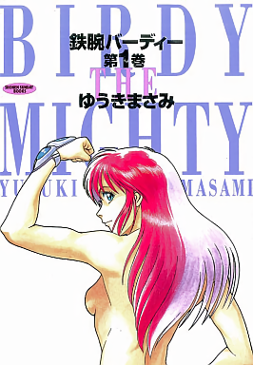
Birdy the Mighty is a Japanese manga series written and illustrated by Masami Yuki. His initial attempt with the story ran in Shogakukan's Shōnen Sunday Zōkan from 1985 to 1988, but it was eventually abandoned. Over a decade later, Yuki began a reboot, which was serialized in Weekly Young Sunday (2002–2008) and Weekly Big Comic Spirits (2008); its chapters were collected in 20 tankōbon volumes. A sequel, titled Birdy the Mighty: Evolution, was serialized in Weekly Big Comic Spirits from 2008 to 2012, with its chapters collected in 13 tankōbon volumes.

Young Animal is a semimonthly Japanese seinen manga magazine that features photos of gravure idols. It has been published by Hakusensha on the second and fourth Friday of each month since 1992.

Gengoroh Tagame is a pseudonymous Japanese manga artist. He is regarded as the most prolific and influential creator in the gay manga genre. Tagame began contributing manga and prose fiction to Japanese gay men's magazines in the 1980s, after making his debut as a manga artist in the yaoi manga magazine June while in high school. As a student he studied graphic design at Tama Art University, and worked as a commercial graphic designer and art director to support his career as a manga artist. His manga series The Toyed Man, originally serialized in the gay men's magazine Badi from 1992 to 1993, enjoyed breakout success after it was published as a book in 1994. After co-founding the gay men's magazine G-men in 1995, Tagame began working as a gay manga artist full-time.

Peacock King is a Japanese manga series written and illustrated by Makoto Ogino. It was serialized in Shueisha's seinen manga magazine Weekly Young Jump from 1985 to 1989, with its chapters collected in 17 tankōbon volumes. It spawned four other manga series. The original manga was licensed in North America in 2020 by Manga Planet.
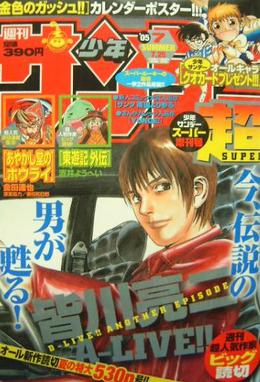
Shōnen Sunday S, formerly known as Shōnen Sunday Super, is a monthly shōnen manga magazine published by Shogakukan in Japan.
Akiko Higashimura is a Japanese manga artist from Kushima in Miyazaki Prefecture. She debuted in the now-defunct manga magazine Bouquet Deluxe in 1999 with Fruits Kōmori (フルーツコウモリ) and later gained notability for her manga Kisekae Yuka-chan, which debuted in Cookie magazine in 2001. Higashimura was nominated for the Manga Taishō in 2008 for Himawari: Kenichi Legend, in 2009 for Mama wa Tenparist, in 2010 for Princess Jellyfish, in 2011 for Omo ni Naitemasu, and in 2016 and 2017 for Tokyo Tarareba Girls. In 2010, she won the 34th Kodansha Manga Award for Best Shōjo Manga for Princess Jellyfish. In 2015, she won both the 8th Manga Taishō and the Grand Prize at the 19th Japan Media Arts Festival for Blank Canvas: My So-Called Artist's Journey. In 2019, she won the Eisner Award for Best U.S. Edition of International Material—Asia for Tokyo Tarareba Girls. Higashimura's younger brother, Takuma Morishige, is the author of the manga My Neighbor Seki.
Bara is a colloquialism for a genre of Japanese art and media known within Japan as gay manga (ゲイ漫画) or gei komi. The genre focuses on male same-sex love, as created primarily by gay men for a gay male audience. Bara can vary in visual style and plot, but typically features masculine men with varying degrees of muscle, body fat, and body hair, akin to bear or bodybuilding culture. While bara is typically pornographic, the genre has also depicted romantic and autobiographical subject material, as it acknowledges the varied reactions to homosexuality in modern Japan.
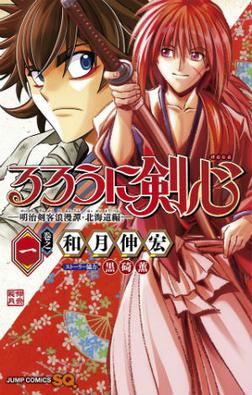
Rurouni Kenshin: The Hokkaido Arc is a Japanese manga series written and illustrated by Nobuhiro Watsuki. His wife, Kaworu Kurosaki, is credited as a story consultant. It is a direct sequel to Rurouni Kenshin and follows Himura Kenshin and his friends in 1883 Japan as they traverse Hokkaido in search of his father-in-law.

Futari Solo Camp is a Japanese camping-themed manga series written and illustrated by Yudai Debata. It was serialized in Kodansha's seinen manga magazine Evening from October 2018 to February 2023, when the magazine ceased its publication. Following a brief run in the Comic Days manga app, the series resumed in Morning in December 2023. Its chapters have been collected in 17 tankōbon volumes as of April 2024.
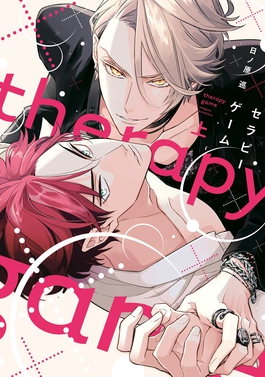
Therapy Game is a Japanese manga series written and illustrated by Meguru Hinohara. Therapy Game is centered on Minato Mito and Shizuma Ikushima, two characters that were previously introduced as secondary and minor characters in Secret XXX, Hinohara's debut work from 2016. It was serialized in the monthly yaoi manga magazine Dear+ from November 14, 2017, to October 12, 2018. Following Therapy Game's end, a sequel titled Therapy Game: Restart is serialized beginning on October 12, 2019.

A Certain Scientific Railgun: Astral Buddy, often shortened to Astral Buddy, is a Japanese manga series written by Kazuma Kamachi and illustrated by Yasuhito Nogi, which was serialized by ASCII Media Works through their monthly magazine Dengeki Daioh from April 2017 to July 2020. The manga is a spin-off of A Certain Scientific Railgun series, focusing on a Tokiwadai Middle School student named Junko Hokaze and her encounter with the "ghost" named Senya Yūri. Seven Seas Entertainment publishes the manga in English.

"Aldebaran" is a song recorded by Japanese-American singer-songwriter Ai, released on November 1, 2021, by EMI Records and Universal Music Group. The song served as the theme song for the Japanese television drama, Come Come Everybody and subsequently served as the third single from Ai's twelfth studio album, Dream.

Majo wa Mioji Kara (魔女は三百路から), in English title The Life of the Witch Who Remains Single for About 300 Years, is a Japanese manga series written by Shigemitsu Harada and illustrated by Kyūjo Matsumoto. It was serialized in Hakusensha's seinen manga magazines Young Animal Arashi (2018) and Young Animal (2018–2020), with its chapters collected in seven tankōbon volumes.














